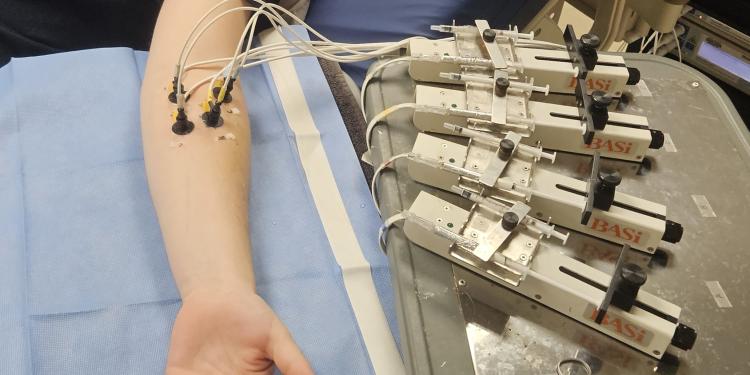-
About
Explore
-
Undergraduate
ExploreUp a level (this gets replaced in JS)
-
Getting Started
Explore
-
Future and Current Students
Explore
-
Get Connected
Explore
-
Get Involved
Explore
-
Diversity and Inclusion
Explore
-
Academic Advising
Explore
- Visit and Apply
- Student Profiles
- Donate
-
Getting Started
-
Graduate
Explore
-
Research
Explore
-
Alumni
ExploreUp a level (this gets replaced in JS)
-
Get Involved
Explore
-
Achievements
Explore
- Contact
- KINES News
- Donate to KINES
- Update Your Contact Information
-
Get Involved
-
Outreach & Service
Explore
-
Contact
Explore
-
Departments
Explore
-
Research Centers
Explore
-
Central Administration
Explore
-
Training and Support
Explore
- Contacts/Directory
Reproductive and heart health
Background
In endometriosis, tissue that is similar to the uterine lining grows outside the uterus, building up and often causing pain, infertility, and other problems. One in 10 women experience the condition, but little is known about it.
Naturally occurring estrogen in a woman's body helps protect against heart disease but also can exacerbate the symptoms of endometriosis. As a result, endometriosis is sometimes treated by suppressing estrogen, but the long term impact of estrogen suppression and cardiovascular health in women with endometriosis is unknown.
Purpose
This study seeks to understand the impact of new treatments to decrease cardiovascular disease risk in women with endometriosis. The researchers will explore the impact of two medications that could potentially treat endometriosis while supporting women's cardiovascular health.

Women who live with endometriosis suffer pain, miss work and may suffer a significantly reduced quality of life. Science can and should provide more insights about how to treat and manage this condition.
Lacy Alexander

Impact
The researchers will test two drugs, Duavee and Simvastatin, that have shown potential for reducing pain and improving blood vessel function in women with endometriosis. For the many women with endometriosis who are at risk for heart disease, one of these treatments may someday lead to healthier, longer lives.
In the picture on the right, researchers monitor how a person's blood flow responds to locally administered drugs. This equipment allows for real-time measurements and removes the need to infuse study drugs throughout the body.
Investigators
Principal investigator: Lacy Alexander
Graduate students: Virginia Content, Auni Williams
Collaborators
Nina Stachenfeld of Yale School of Medicine and Lakshmi Santhanam of Johns Hopkins School of Medicine are key collaborators on this research.
Sponsor
This work is funded by a multi-million-dollar grant from the National Heart, Lung, and Blood Institute, 2022-27.

